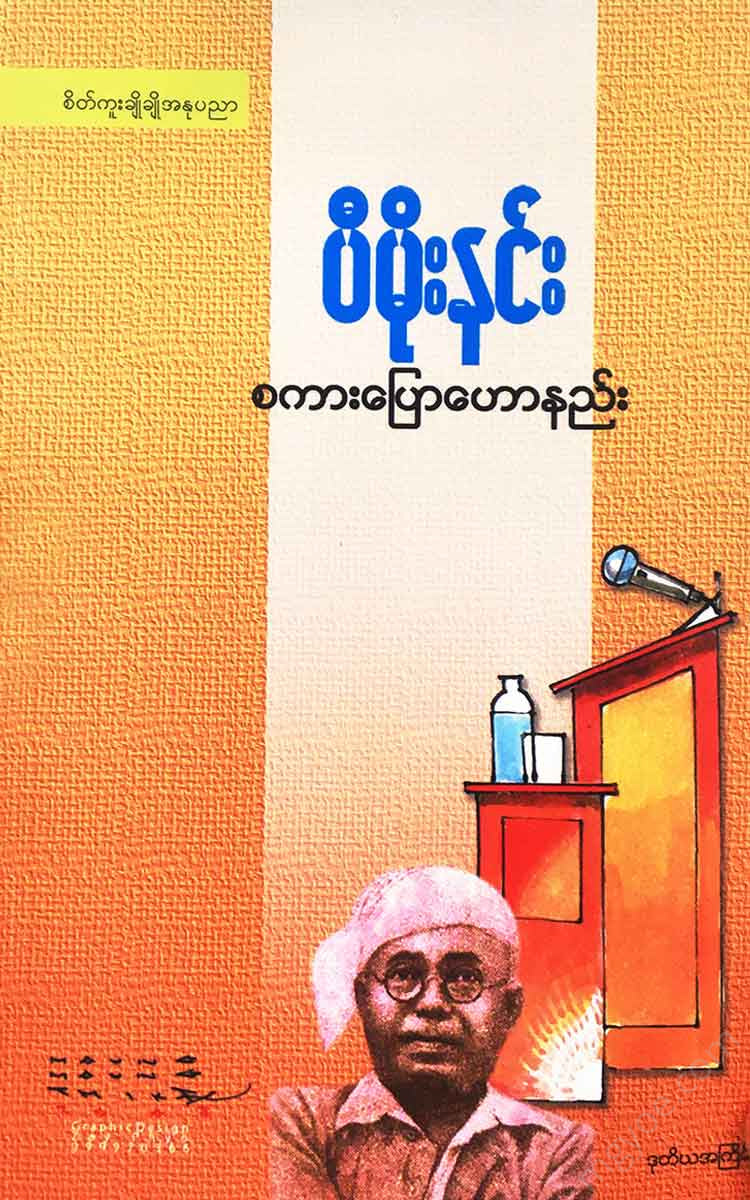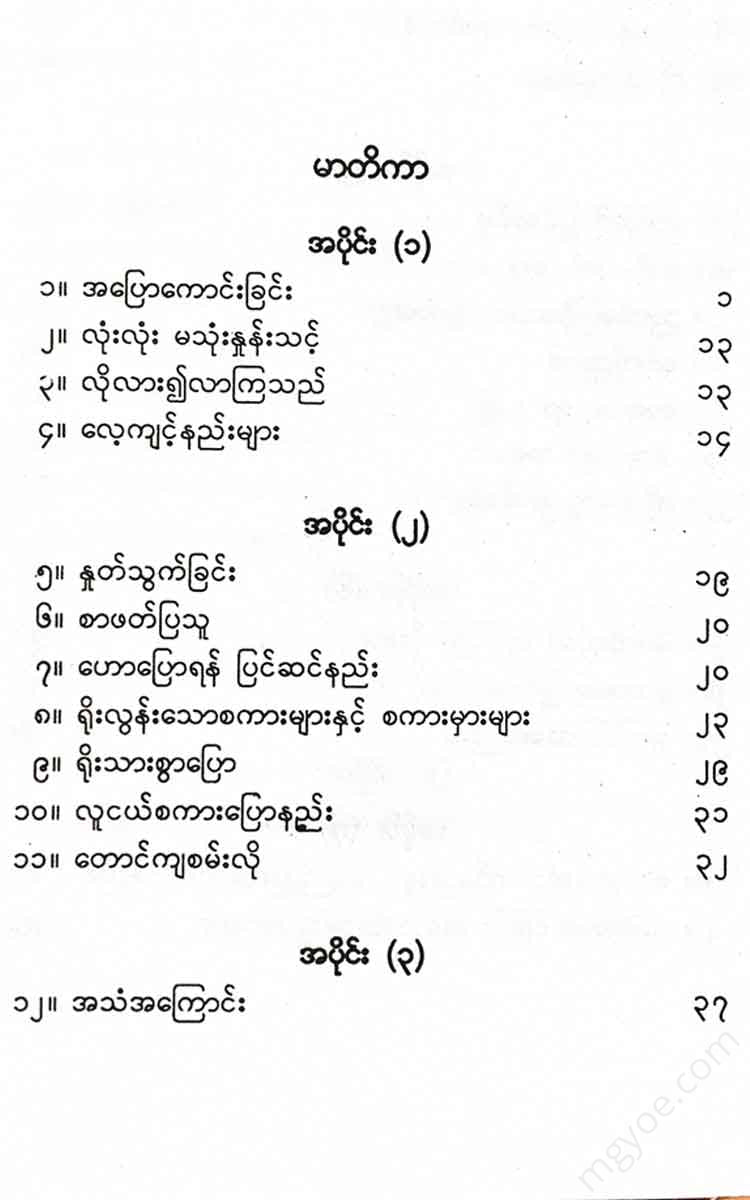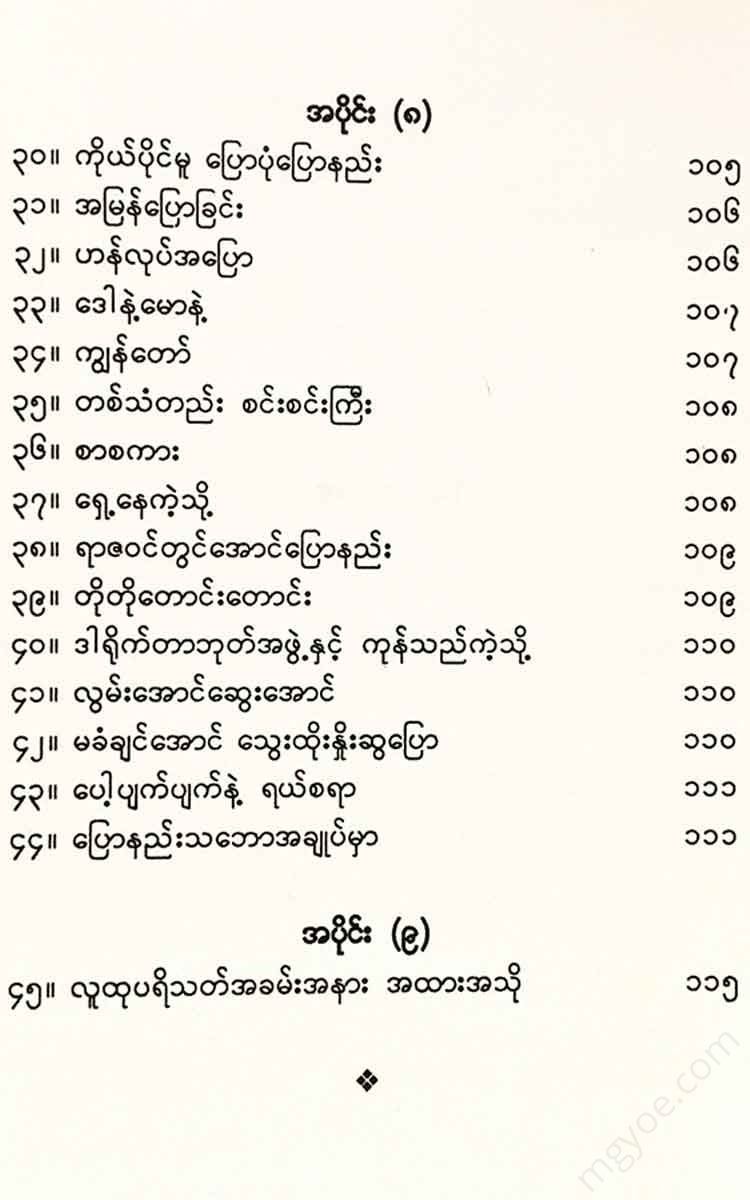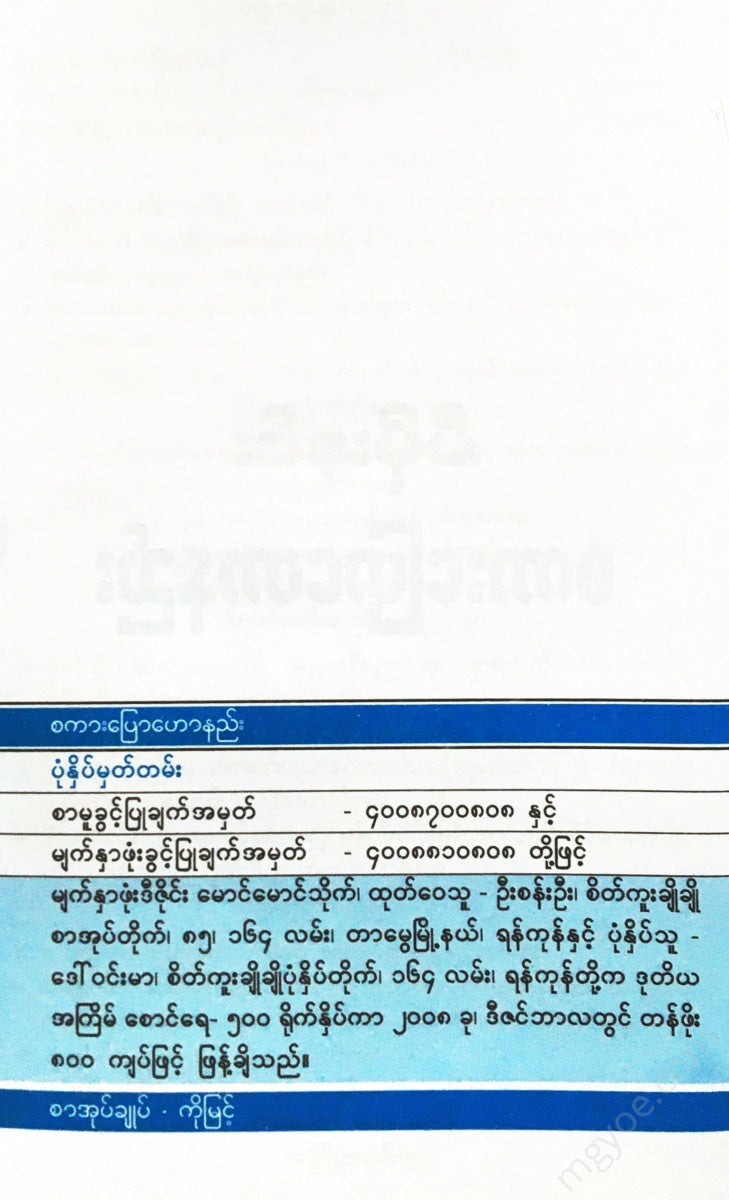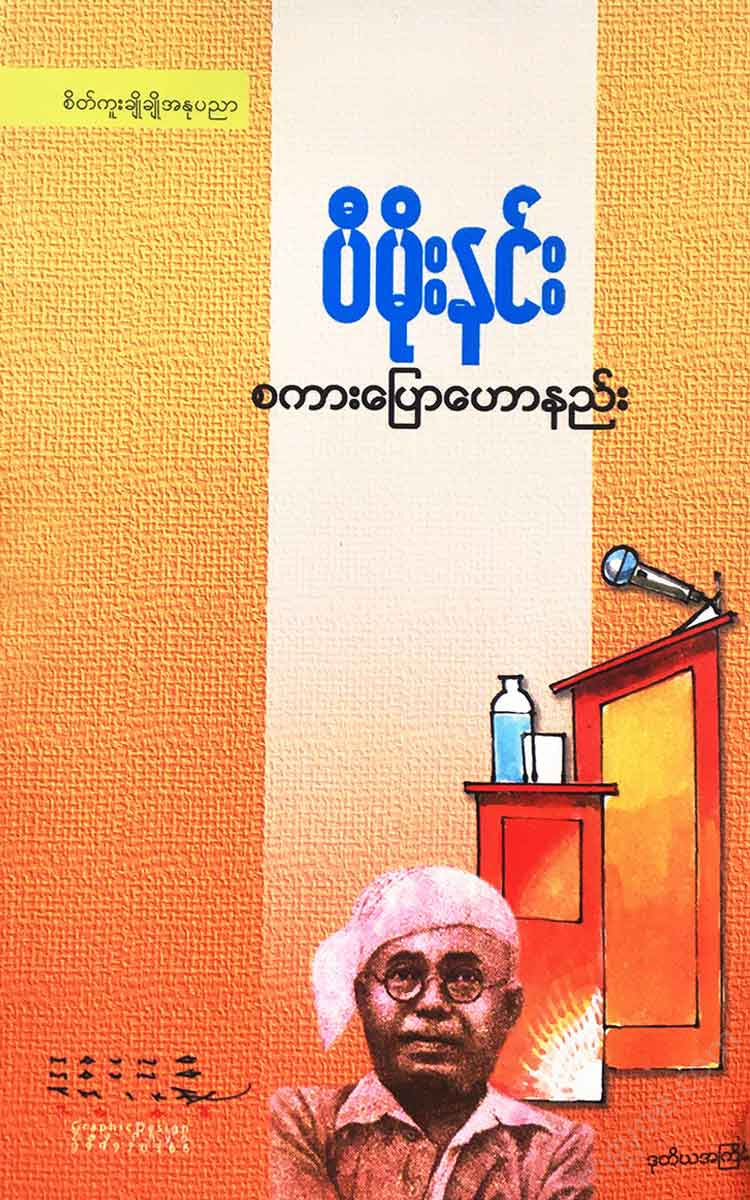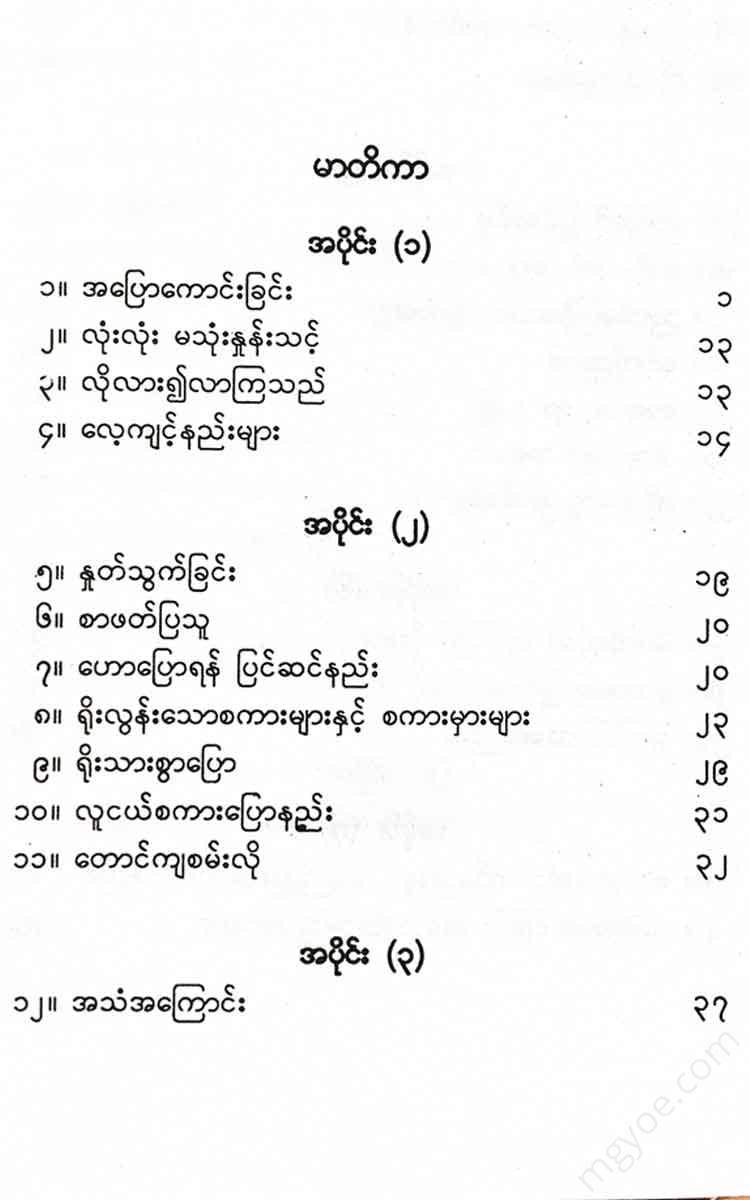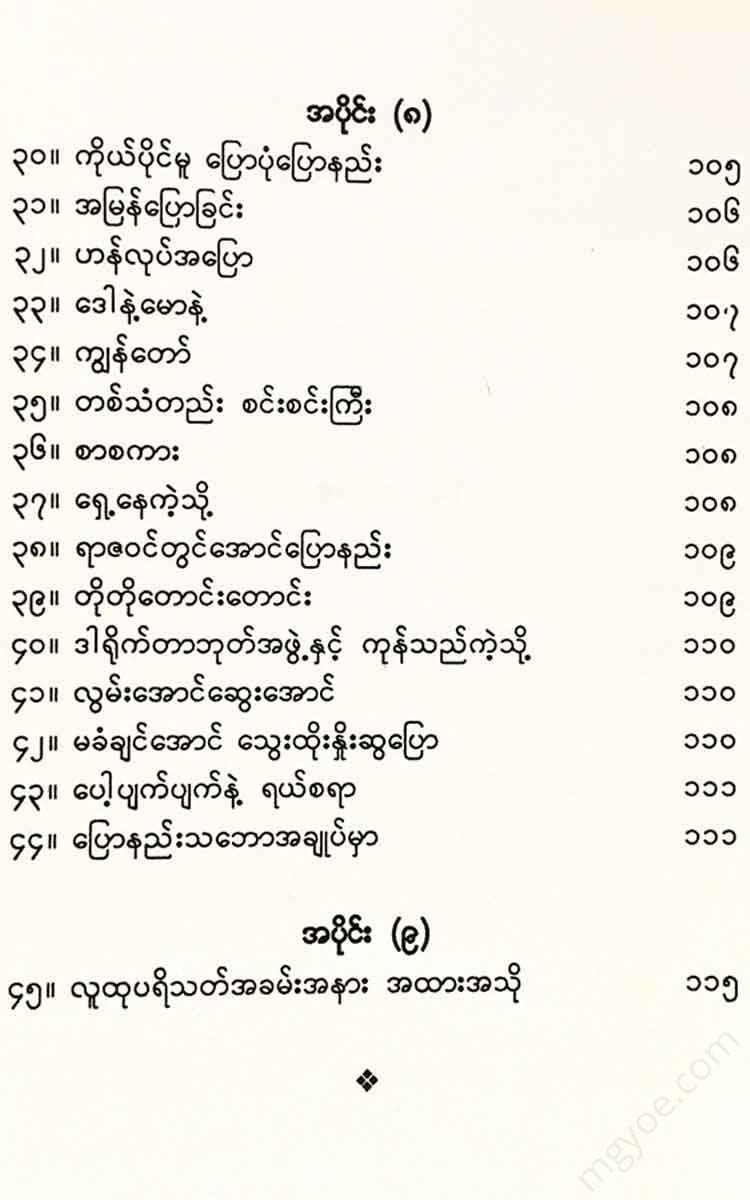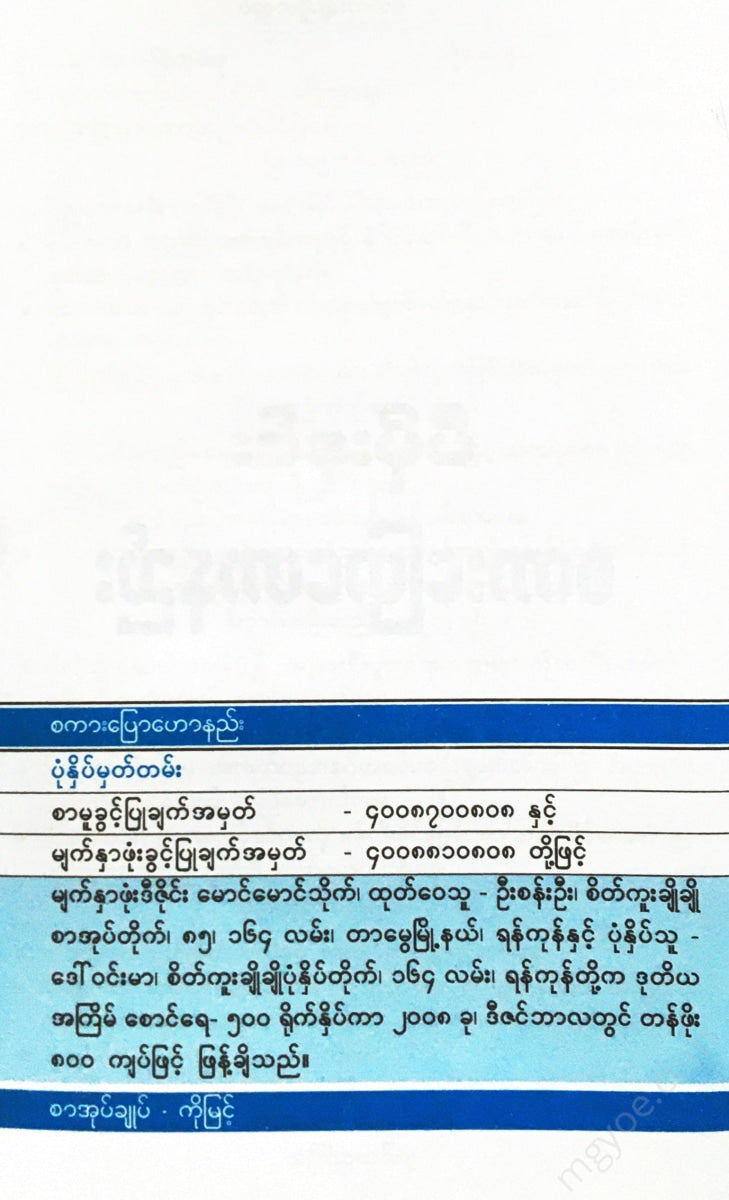စိတ်ကူးချိုချိုစာပေ
Pi Morning - How to Speak
Pi Morning - How to Speak
Couldn't load pickup availability
1 Good speech
What are the elements of good speech?
To be removed,
Interested,
Aso,
Experience,
Speaking figuratively,
Presenting evidence,
Good technique,
High and low sound quality
Clarity,
Good gestures,
Thinking and reasoning,
The manners are rich,
Good innate intelligence,
These are the organs.
Anyone who starts out as a speaker is always a laughing stock at first. Disraeli stopped before he could finish speaking. The same goes for the person named Rinkuan, and the same goes for the person named Sheldon. Because they tried hard and never gave up, they became famous orators in history.
He drowned in his first swimming lesson.
I bruised my leg while learning to ride a bicycle.
The first boxer had a nosebleed.
It is said that good speakers are born with a stomach. That is true. However, it is also possible to train someone who is not born with a stomach. People with a stomach will learn speaking skills more quickly when trained. People who are not born with a stomach will need to be trained a little longer. But that does not mean that they cannot do it.
The greatest orator in history, called Damon Sanis, was a stammerer. His name became famous in world history because of his hard work and perseverance in order to become a good orator. It is said that true geniuses, those who excel in something, do not need to be taught. That is a mistake. Those who excel in music, although they are naturally intelligent, must be taught the fundamental principles of music.
Tanna is a skilled painter. However, he can only paint after he has learned the art of painting. Natural-born artists are no different. They are those who have been trained in a skill that is close to their own for many years. If they do not practice, do not listen, and do not hear, they cannot be skilled or excellent. In teaching and training, there is no such thing as being incapable. No one sees or knows that outstanding people are trained and taught, and only when they are famous can they be known. The main thing is not to have the thought that I will not be able to be the first one, because I did not succeed, I did not see it, and I did not succeed. I must firmly hold that point in my mind. I only need to believe that if I practice, I will definitely be able to speak better than I am now.
Don't be discouraged. Just have faith. When you see the audience, fear arises. At that time, you must eliminate that fear. You must have the mindset that this place and this time are the places where I can help develop my strength.
In that case, there is always fear. Fear is an attachment. No one can get rid of attachment. However, fear is a kind of help. Awareness and diligence can come out of this fear.
Fear is a disease. That disease is related to the body.
My knees are stiff and I want to move. My mouth is dry. My heart is racing. I feel uneasy in some way. These symptoms are not uncommon. They are caused by fear.
They are symptoms that occur in the body and are a type of disease that occurs in the body.
Every new soldier is like that in his first battle. After fighting for a while, he overcomes those pains. Through the power of practice, his mind becomes stronger.
Of.
Fear of the audience arises from a conscious awareness of the fact that one's posture is out of place, that one is like a slip. That slip is real. It is not an illusion.
How to stand, how to use your hands, how to breathe, how to make a sound.
No one ever knows.
When you know the way to these things, the feeling of being out of place, the feeling of falling, will automatically disappear. Because then you have walked and become a being. When you have walked, you come to know your own strength. At that time, there is no way to be afraid. Because you have known the way.
However, there is no fear of the audience. There is no way or method that will make that fear go away.
Fear of the audience comes from the consciousness that I am not good at speaking or preaching. Without this natural law, foolish people would speak and preach whenever they wanted to. It would also cause great suffering to those who have to listen.
Fear of the audience is also a matter of the mind. Because the body is not in the right position, and the mind is not in the right position. That fear is a matter of the mind. Because every new work, to a greater or lesser extent, always moves the mind.
At first, every word and every sentence I say is my own. I am aware that many people's eyes are fixed on me. I think that the voice I speak is very loud, and I think that my own voice is also loud. I wonder if my voice is my own. But between one sentence and another, I think that there is an incomprehensible silence. I wonder if my words are true. A little slip of the tongue makes it seem like it is right. Then I can't sit still in my mind, and I can't sit still.
After six months of training, you will no longer find that kind of thing. Because speaking in front of an audience is not something you get. It comes naturally and naturally.
It will become like a talking machine. The mechanic of that talking machine is none other than the inner mind of the speaker. The mind that rides a bicycle, the mind that swims. The mind that knows and does, the mind that speaks, is the outer mind. That mind is the mind that learns to ride a bicycle, the mind that learns to swim.
That goes for all skills. Speaking is not an instant skill. Anyone can learn to ride a bike and learn to speak. Just as no one can learn to ride a bike, no one can learn to speak without learning to speak.
Burmese is not like English. In European languages, such as English, there is no difference between written and spoken words. Even in local speech, a literate person speaks as he or she writes. Therefore, English people can tell whether someone is literate or not by just a few words they say. An illiterate English person speaks grammatically. English is not only grammatically bad in writing, but also in speaking.
In Burmese, there is a kind of writing and a kind of speech, so even if you are illiterate, you can speak it. Some illiterate people can speak it better than those who are literate.
However, in the midst of an audience, it is not possible to use only local language. It is also not easy to use only written language. It is also night. ; in, of, is. But, there is, there is, it is. The sounds of the words "ເຮັນລາວນານ" will be funny to the audience. Therefore, when it is appropriate to use clear language without making people laugh, it should be used appropriately. When it is appropriate to use local language, it should be used.
For example, "Then," "Then," "It's very difficult," these kinds of words are not written words but are just colloquial words, but they can be used without being too formal. Therefore, you should practice how to present a news story or a topic in a newspaper and how to present it in front of an audience, either in writing or by speaking it out loud. For example..
“The 2nd meeting of the Rakhine Buddhist Association of Bangladesh was held on the 12th of the first lunar month of Kason at the Aggadh Sayadaw Temple in Taloung Zay, and was attended by more than 2,000 monks and dignitaries from the town.”
If you have to preach to an audience according to that passage, it will be tiring and not good for them to listen to. Therefore, first of all, you should prepare the following.
“I heard that the Rakhine Buddhist Association of Bangladesh held its second meeting on the 12th of the first lunar month of Kason. At that meeting, both monks and lay people, from the city and the rural villages, and more than 2,000 distinguished guests attended. It was very encouraging. (Wow) very encouraging. (Wow) very good.
When corrected in this way, the rigidity of the letter becomes a smooth, soft sound.
However, a person uses an accent.
